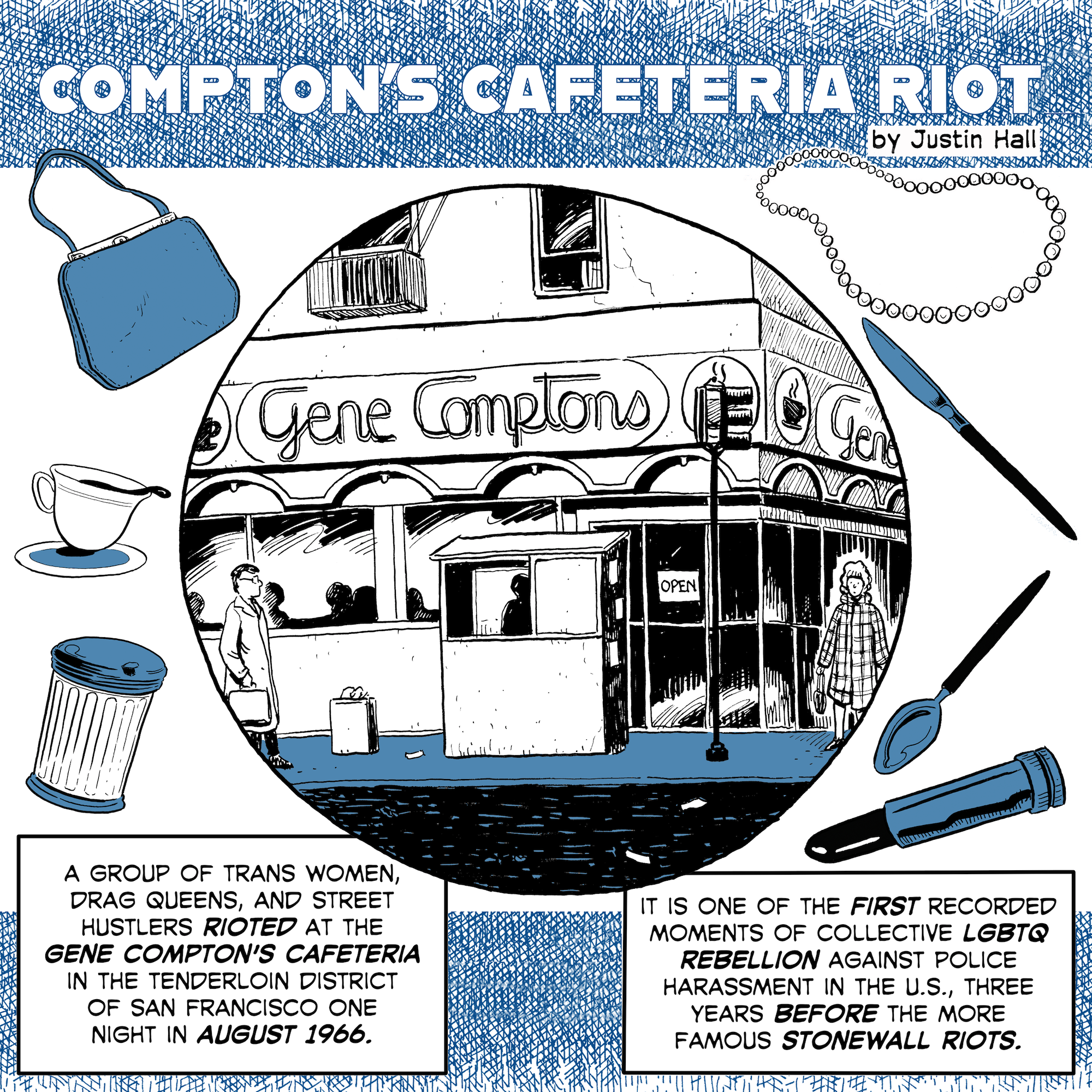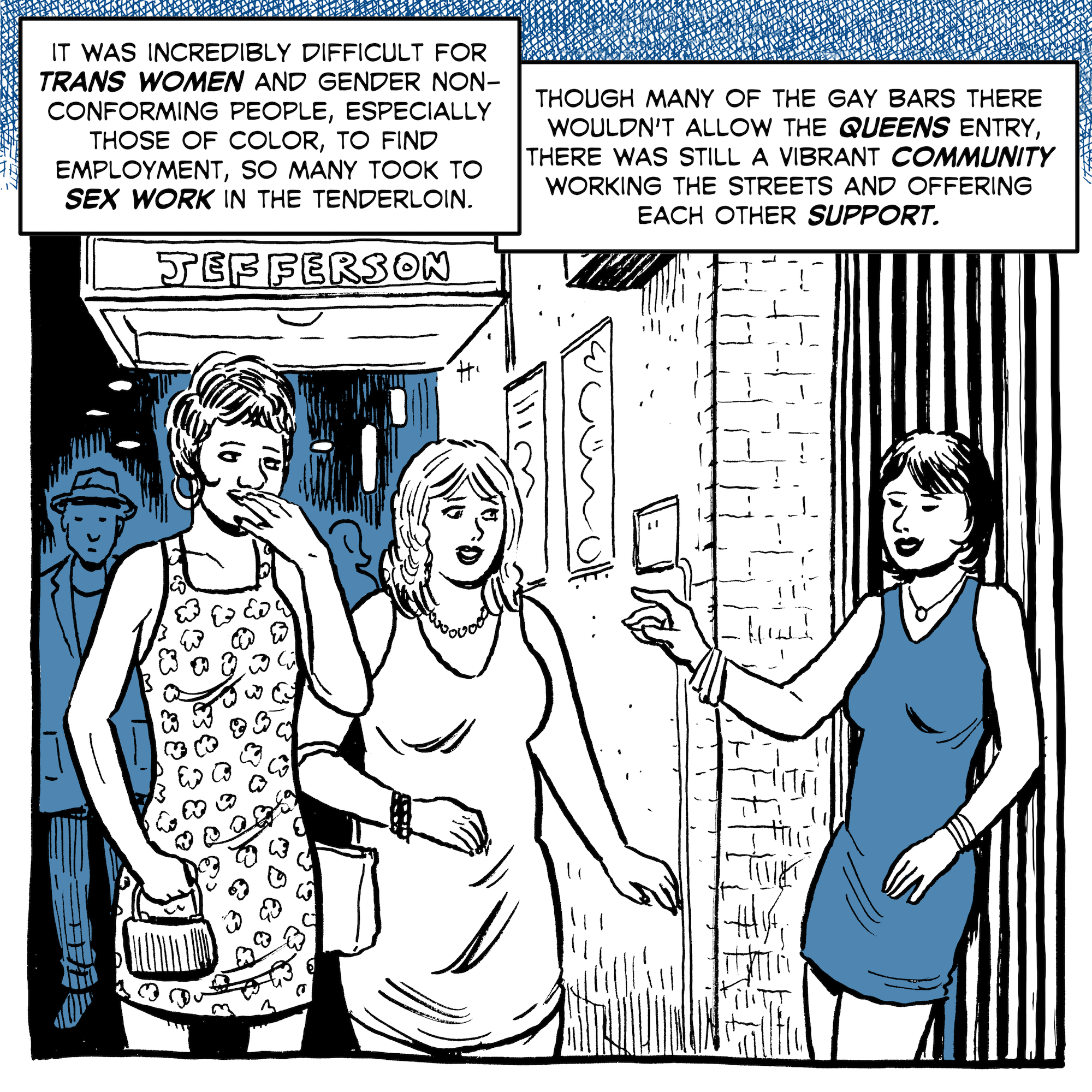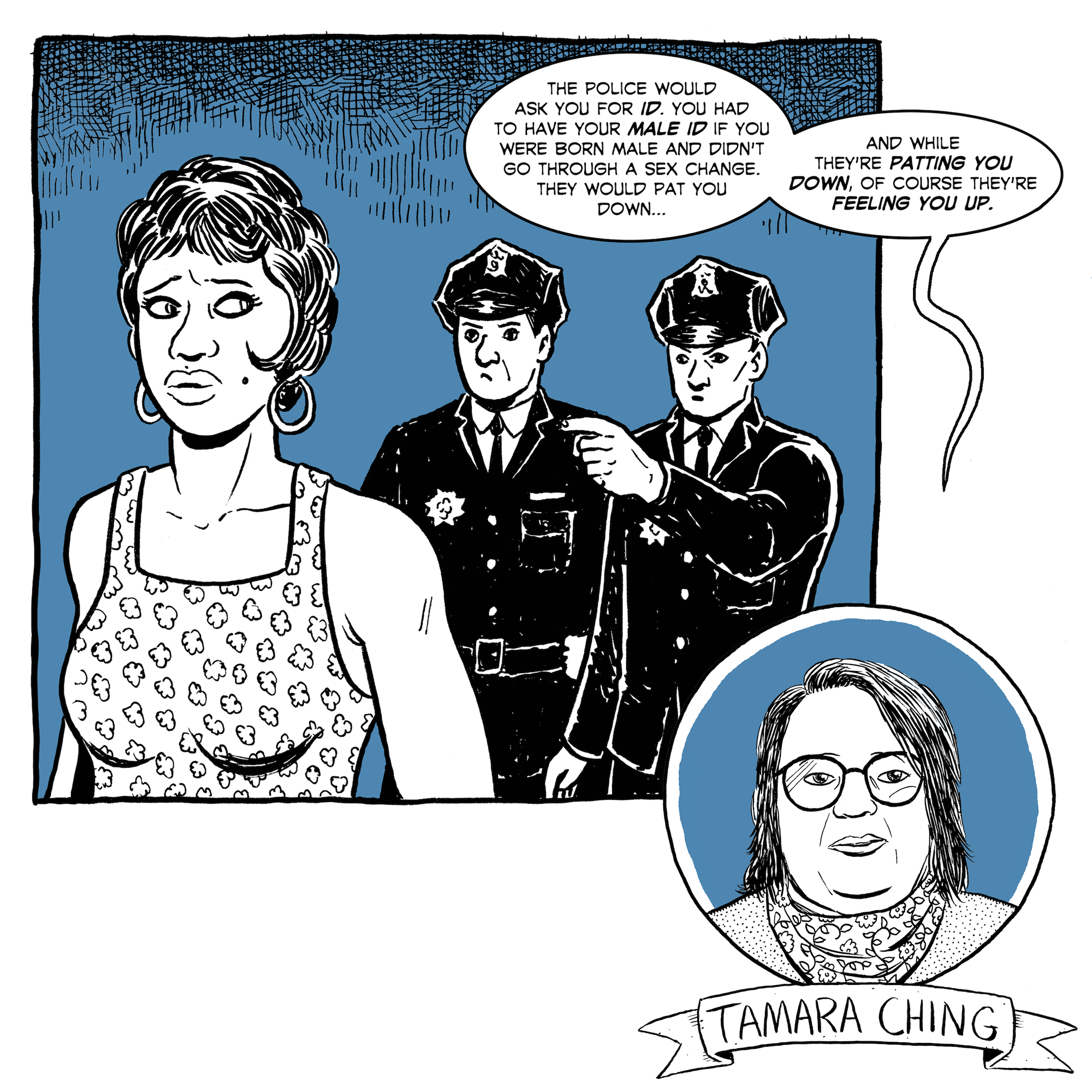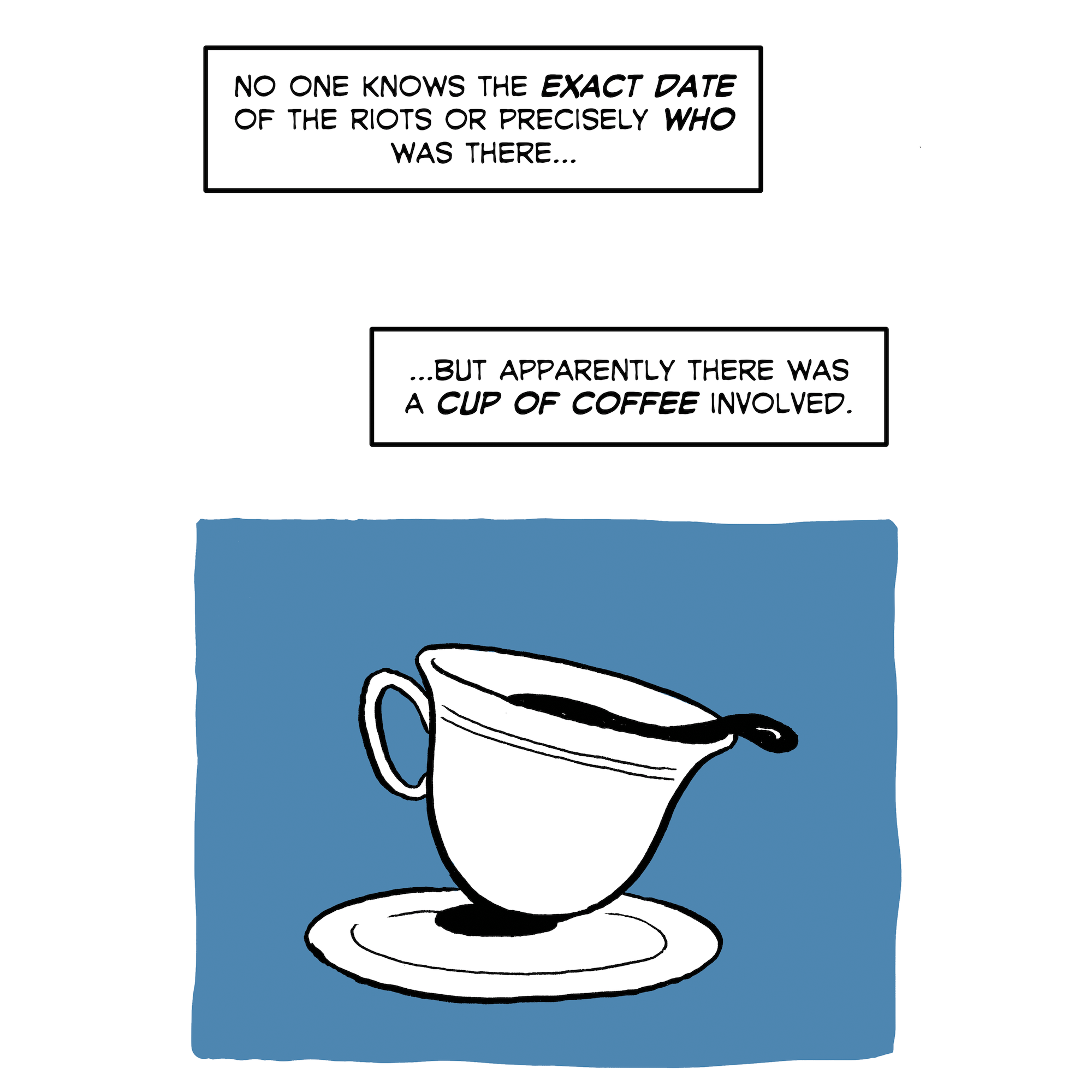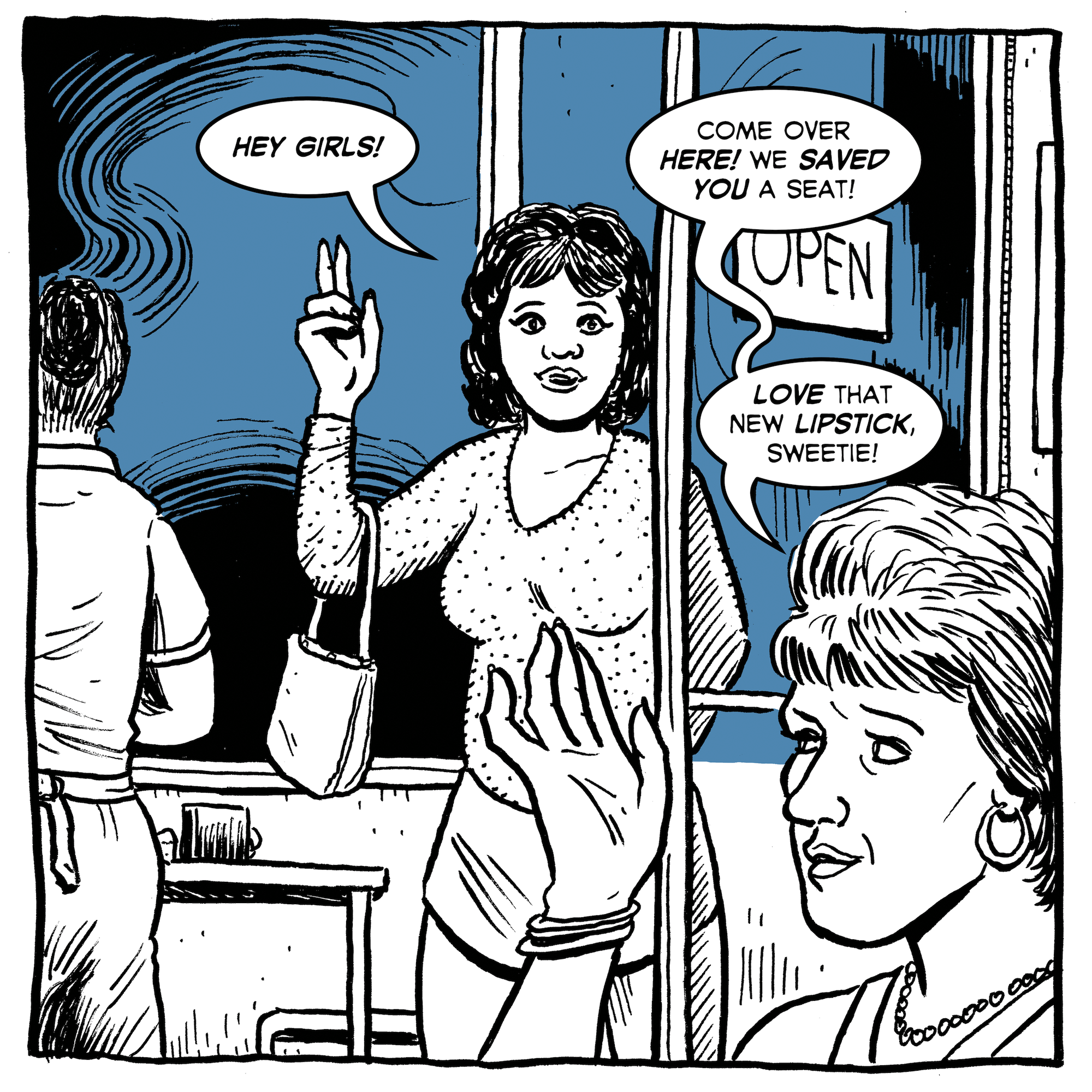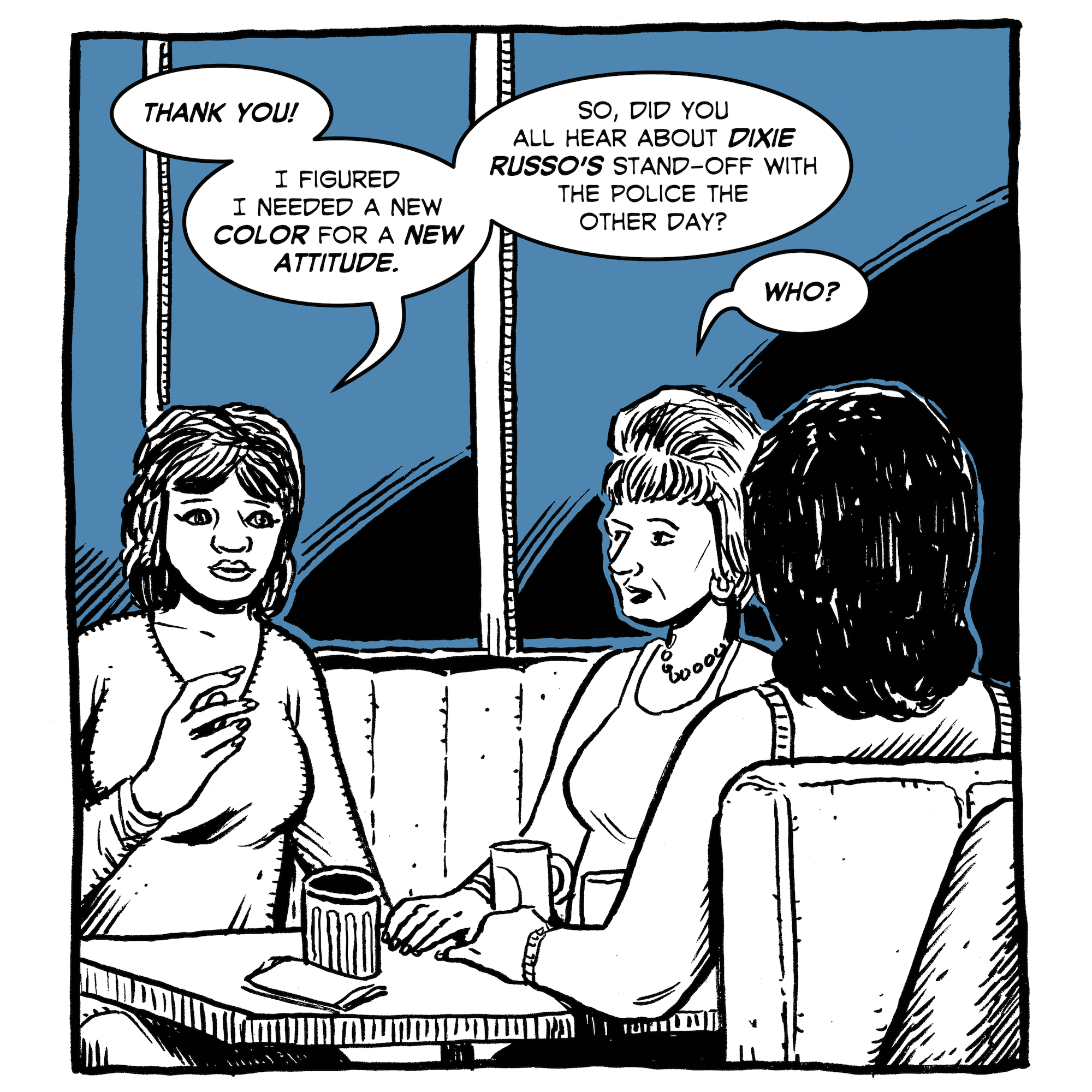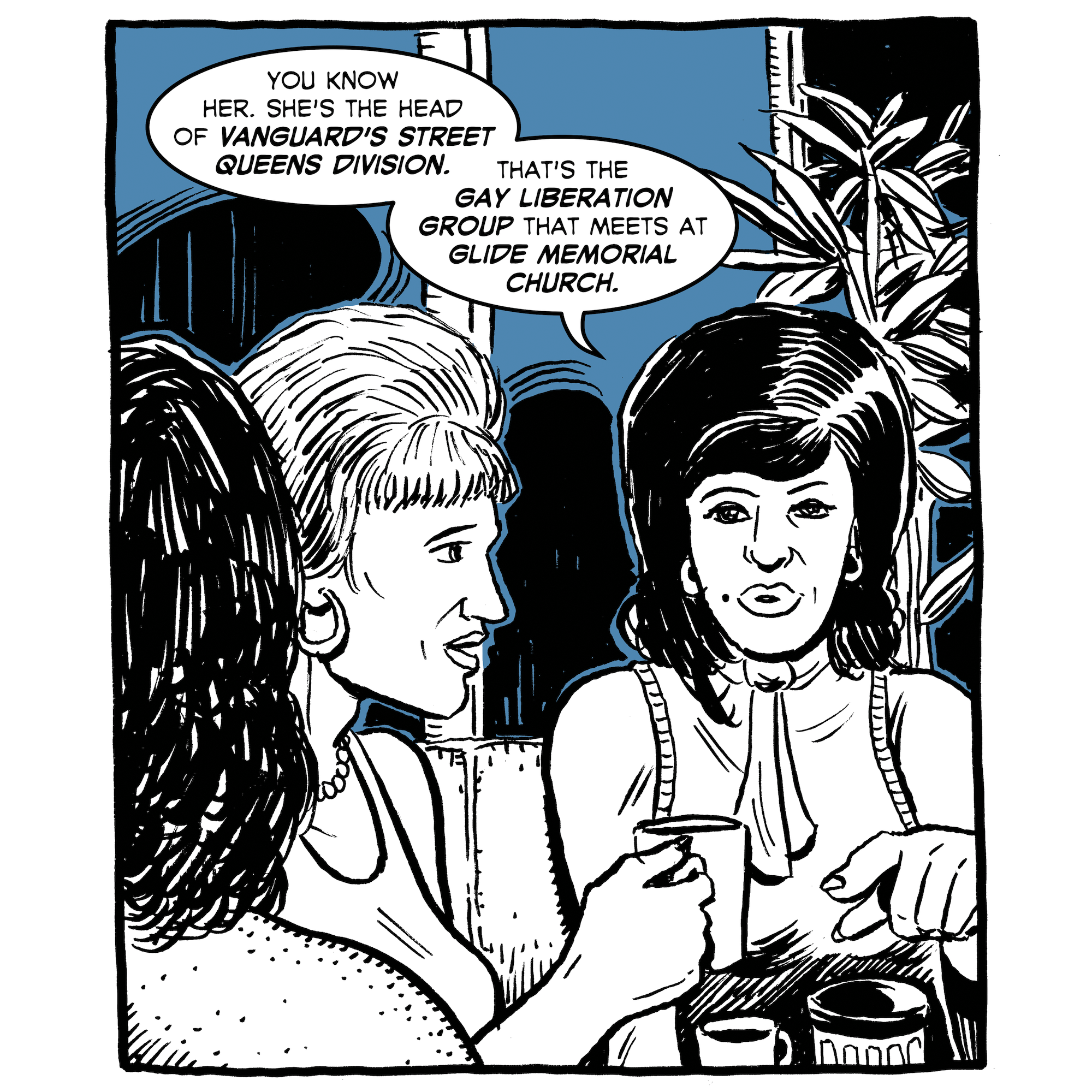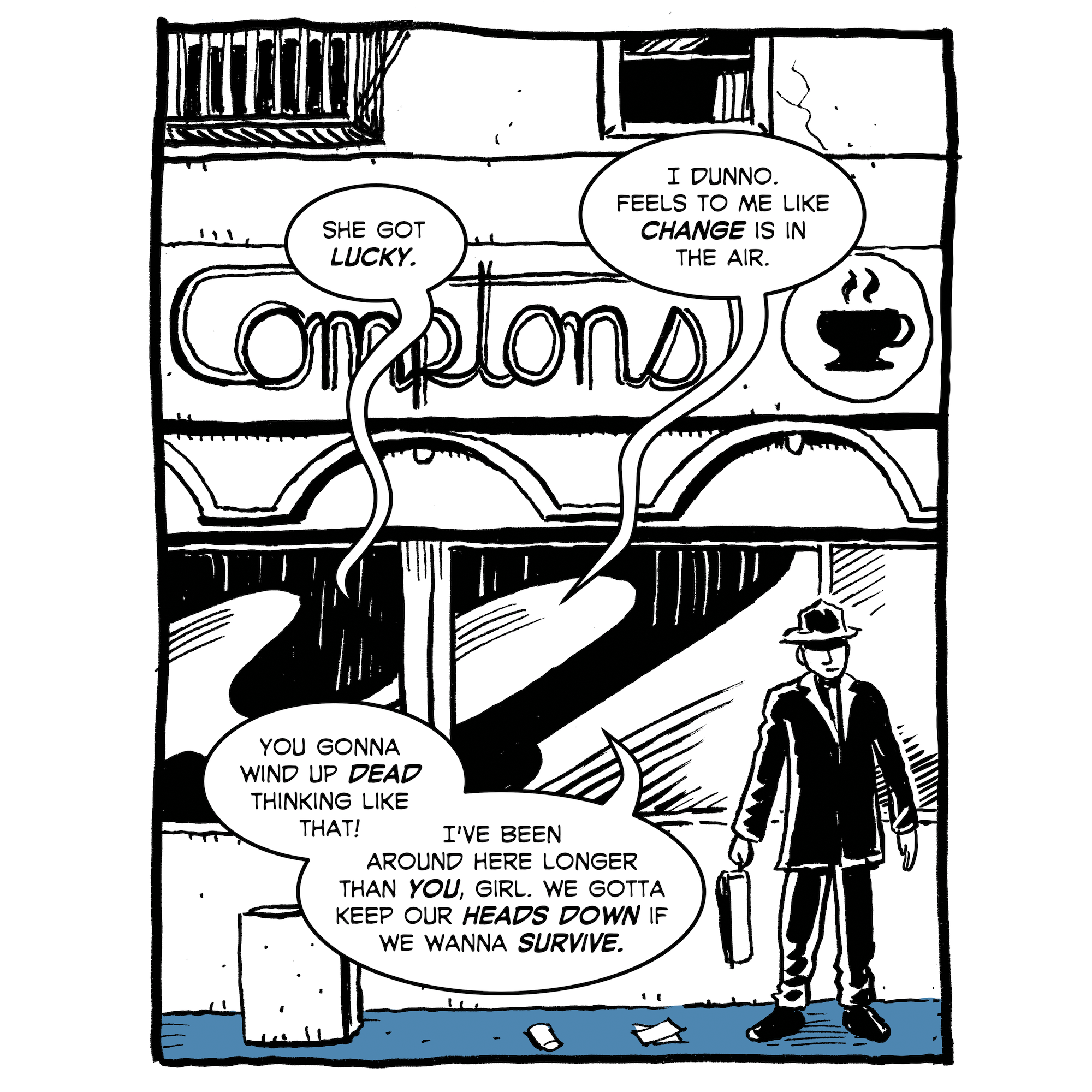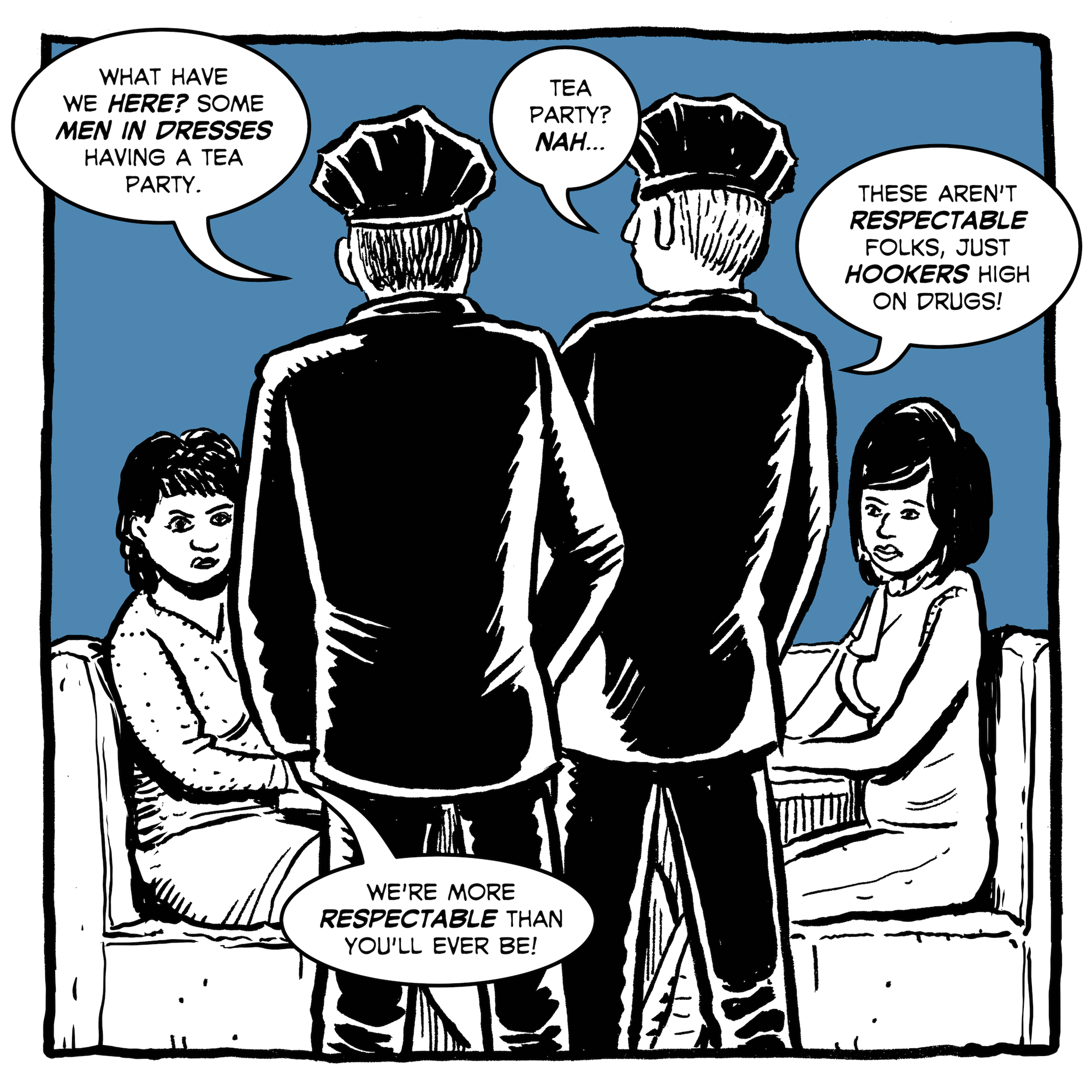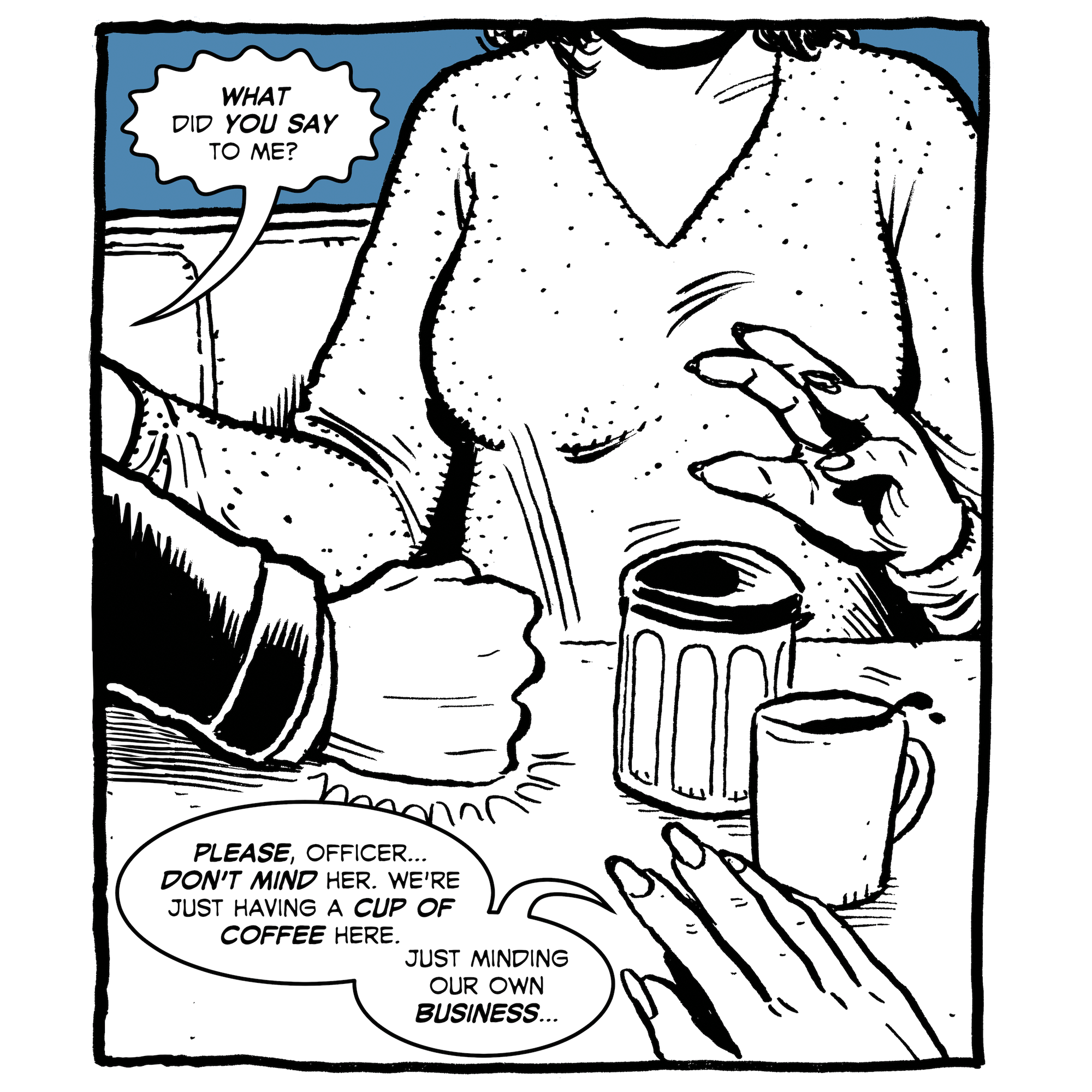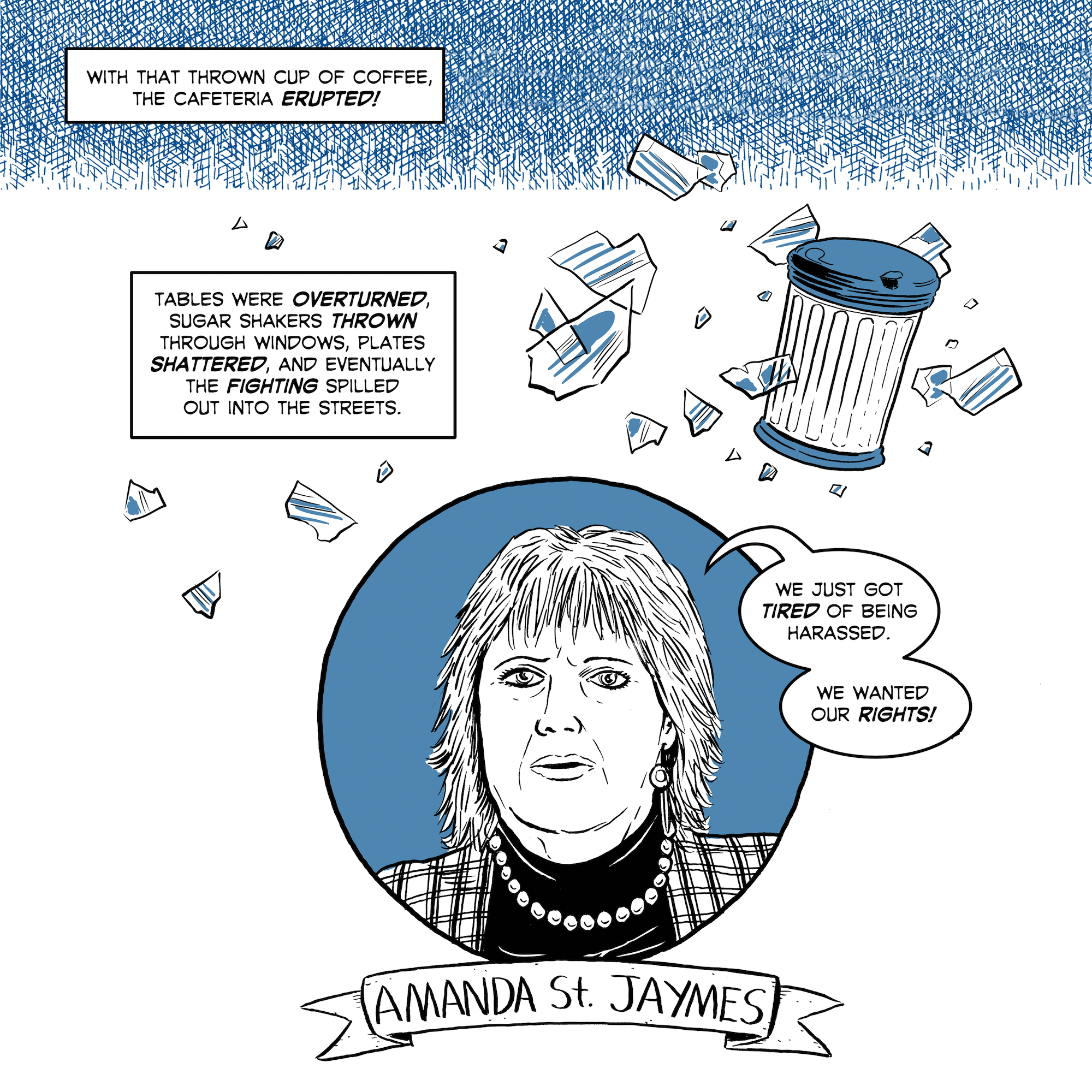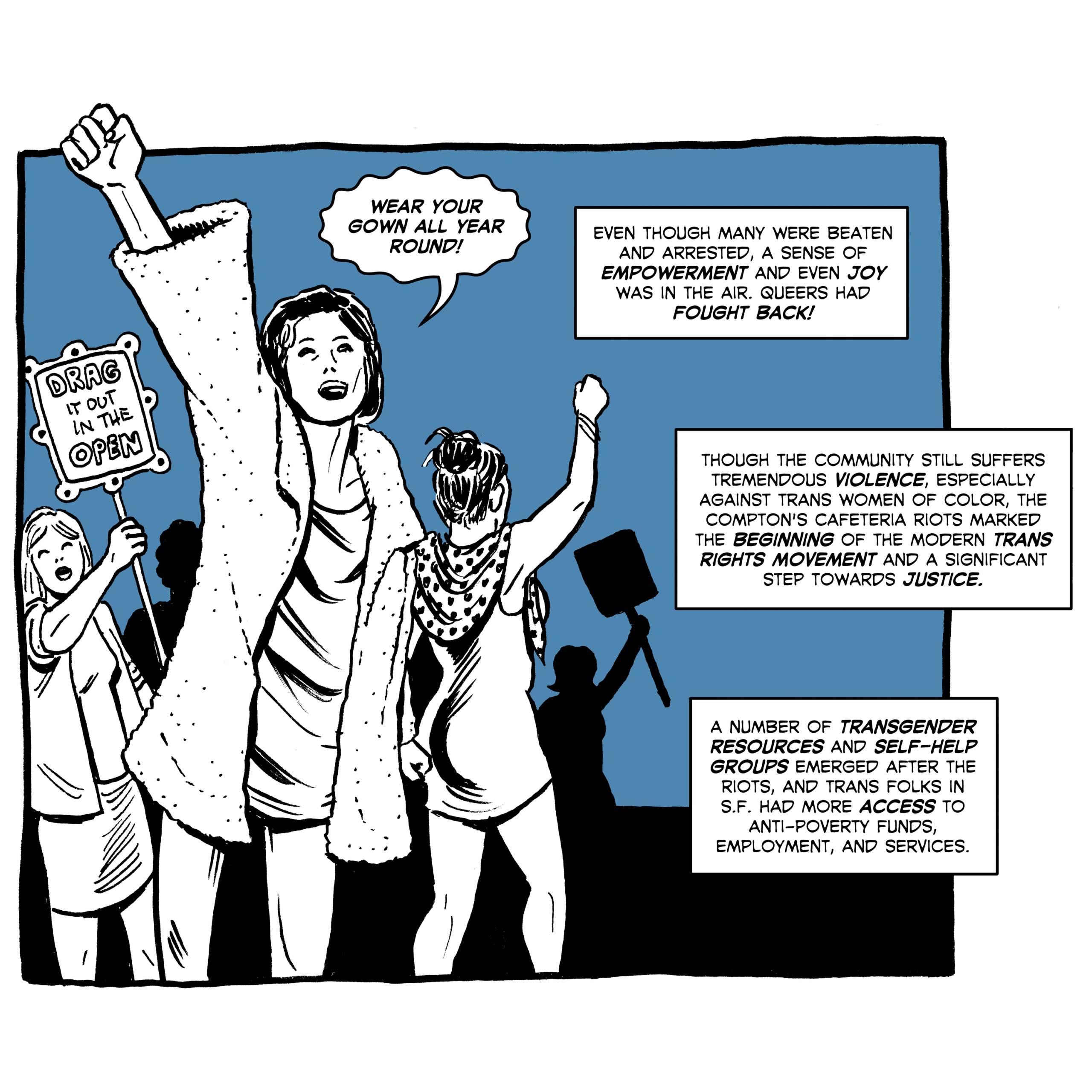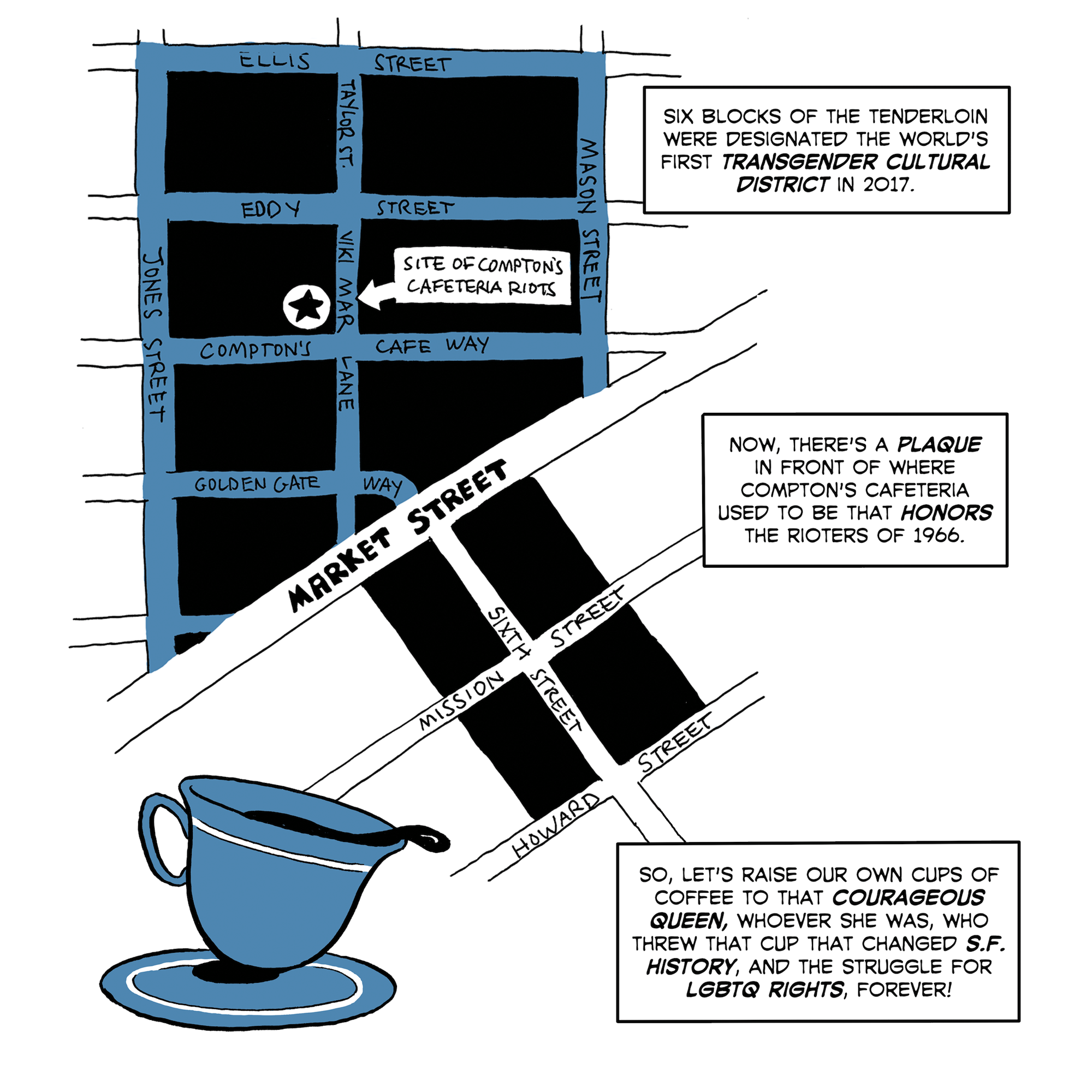Editor’s note: This story is part of ‘Trans Bay: A History of San Francisco’s Gender-Diverse Community.’ From June 9–19, we’re publishing stories about transgender artists and activists who shaped culture from the 1890s to today.
In this comic, artist Justin Hall tells the story of the Compton’s Cafeteria riot of 1966, when trans women, drag queens and street hustlers fought back against abusive police at a Tenderloin diner. The riot galvanized the movement for trans rights, three years before Stonewall, and forced San Francisco to adopt important reforms.
